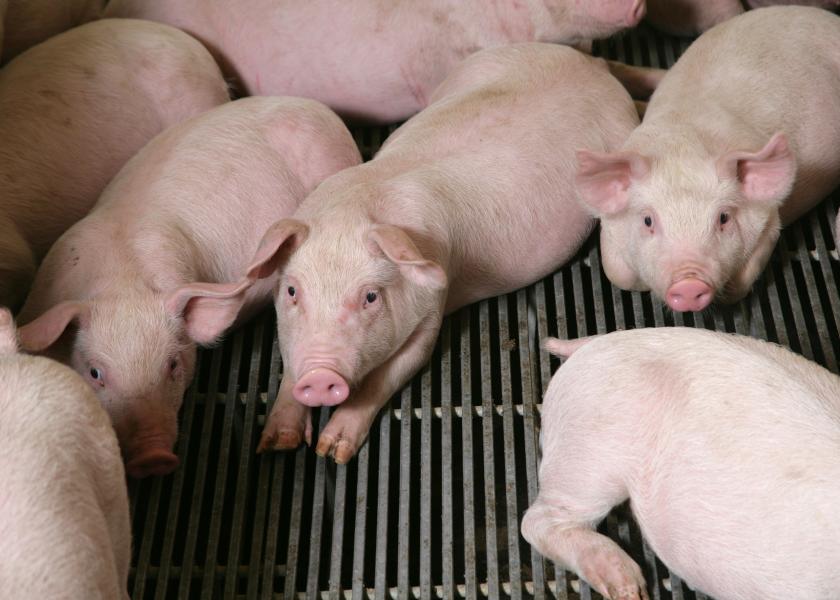USDA Takes New Action to Prevent African Swine Fever

USDA is implementing an African Swine Fever (ASF) surveillance plan to enhance its preparedness efforts. As part of this plan, USDA announced on Thursday that Animal and Plant Health Inspection Service (APHIS) will work with the swine industry, the states and veterinary diagnostic laboratories to test for ASF. Although there are no reported cases of ASF in the U.S. – an animal disease affecting only pigs and with no human health or food safety risks – the risk continues to grow as outbreaks continue throughout China and other parts of Asia.
USDA plans to add ASF testing to its existing classical swine fever surveillance. They will test samples from the same high-risk animals, using the same overall process, but will test for both diseases instead of one. USDA and its partners expect to begin ASF surveillance efforts within weeks and will implement the full surveillance plan over the course of the spring.
“African Swine Fever is an area of high interest among the veterinary community and our swine industry, and we continue to take action to prepare for this deadly disease,” said Greg Ibach, Undersecretary for Marketing and Regulatory Programs.
Ibach said he is confident that overlapping safeguards will continue to keep ASF out of the U.S.
“An enhanced surveillance program will serve as an early warning system, helping the U.S. find any potential disease more quickly,” Ibach said. “It will also minimize virus spread and support efforts to restore trade markets and animal movements as quickly as possible should the disease be detected.”
An outbreak of ASF in the U.S. would be devastating, especially when U.S. pork producers are already suffering as a result of numerous trade disputes with top-importing countries, said David Herring, a pork producer from Lillington, N.C., and president of NPPC.
"That's why it's so important we have a strong surveillance program, to ensure early notification of any spread of the virus. With no vaccination available, prevention is our only defense. We thank USDA for today's announcement and look forward to working with the agency to strengthen safeguards to protect our animals,” Herring said.
Surveillance and testing efforts
The surveillance effort will test samples from high-risk animals, including sick pig submissions to veterinary diagnostic laboratories; sick or dead pigs at slaughter; and pigs from herds that are at greater risk for disease through such factors as exposure to feral swine or garbage feeding, USDA said.
“This enhanced ability by the USDA’s Animal and Plant Health Inspection Service to test for ASF simultaneously with classical swine fever only helps to improve the pork industry’s overall surveillance capabilities,” said Dave Pyburn, DVM, senior vice president of the Pork Checkoff’s science and technology department. “We continue to collaborate with USDA and all of our industry partners to find new ways to enhance preparedness for foreign animal diseases. Anything that we can do to improve surveillance and mitigate risk is something we want to achieve so that we can help keep our country free of these costly diseases. We also want to have every possible advantage if these diseases do reach our shores so that we can quickly restore animal health, animal movements and trade for business continuity.”
USDA will work with state and federal partners to identify and investigate incidents involving sick or dead feral swine to determine if they should be tested for ASF or other foreign animal diseases.
The surveillance testing of commercial swine herds is an addition to USDA’s overall African swine fever prevention effort, including:
• Working with officials in Canada and Mexico on a North American coordinated approach to ASF defense, response, and trade maintenance;
• Working with U.S. Customs and Border Protection at ports of entry, paying particular attention to cargo, passengers, and products arriving from China and other ASF affected countries;
• Increasing detector dog teams with U.S. Customs and Border Protection to sniff out illegal products at key U.S. commercial sea and airports;
• Collaborating with states, industry and producers to ensure everyone follows strict on-farm biosecurity protocols and best practices (including for garbage feeding in states where that is allowed);
• Restricting imports of pork and pork products from affected countries;
• Coordinating closely on response plans with the U.S. pork industry, producers and states to be ready should a detection ever occur in the U.S.; and
• Expanding the testing capabilities and testing capacity of the National Animal Health Laboratory Network.
For more information on ASF, visit Farm Journal’s PORK’s ASF Resource Center at porkbusiness.com/ASF.
Related Articles:
Stop Swill Feeding to Prevent African Swine Fever in the U.S.







